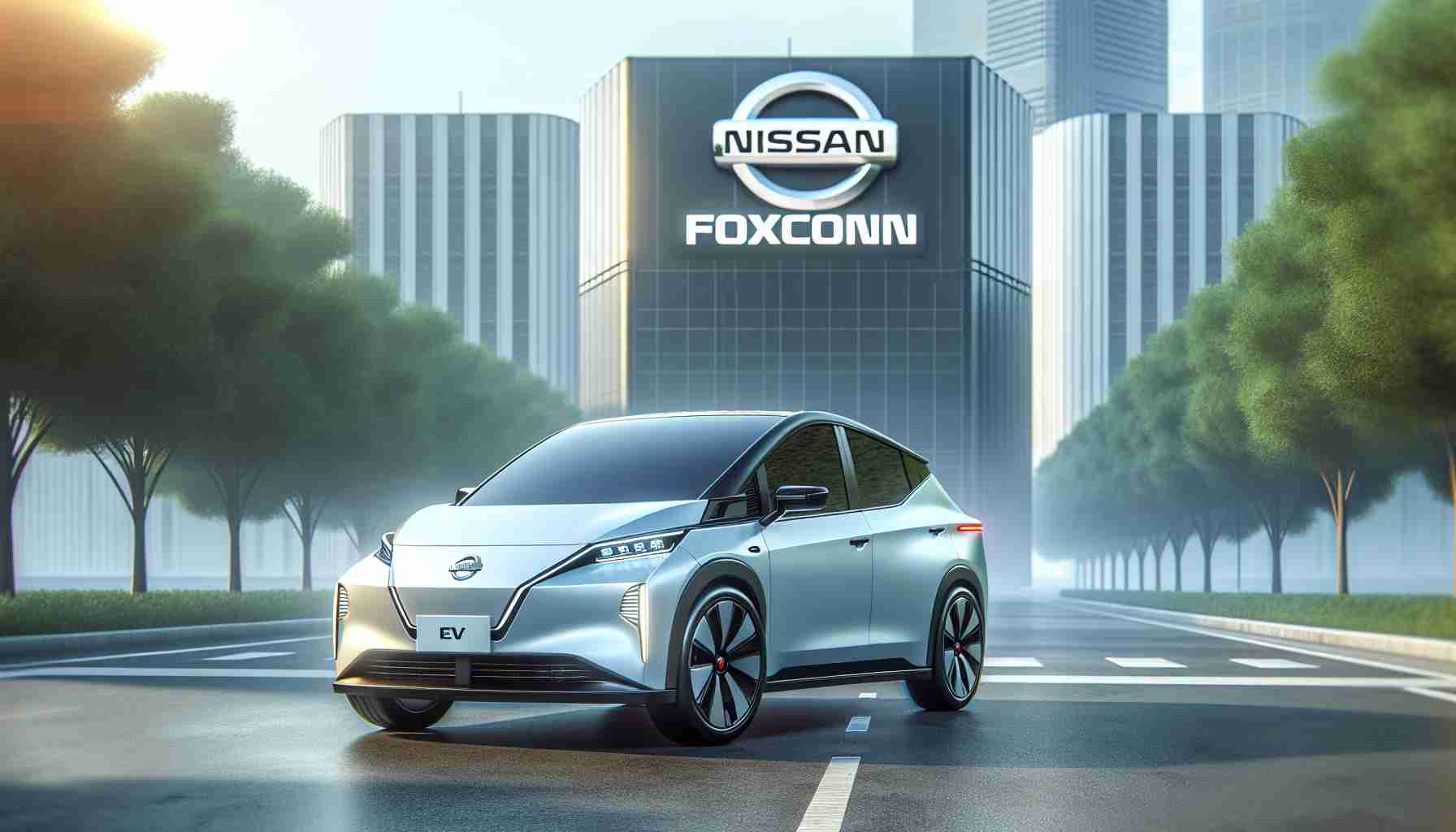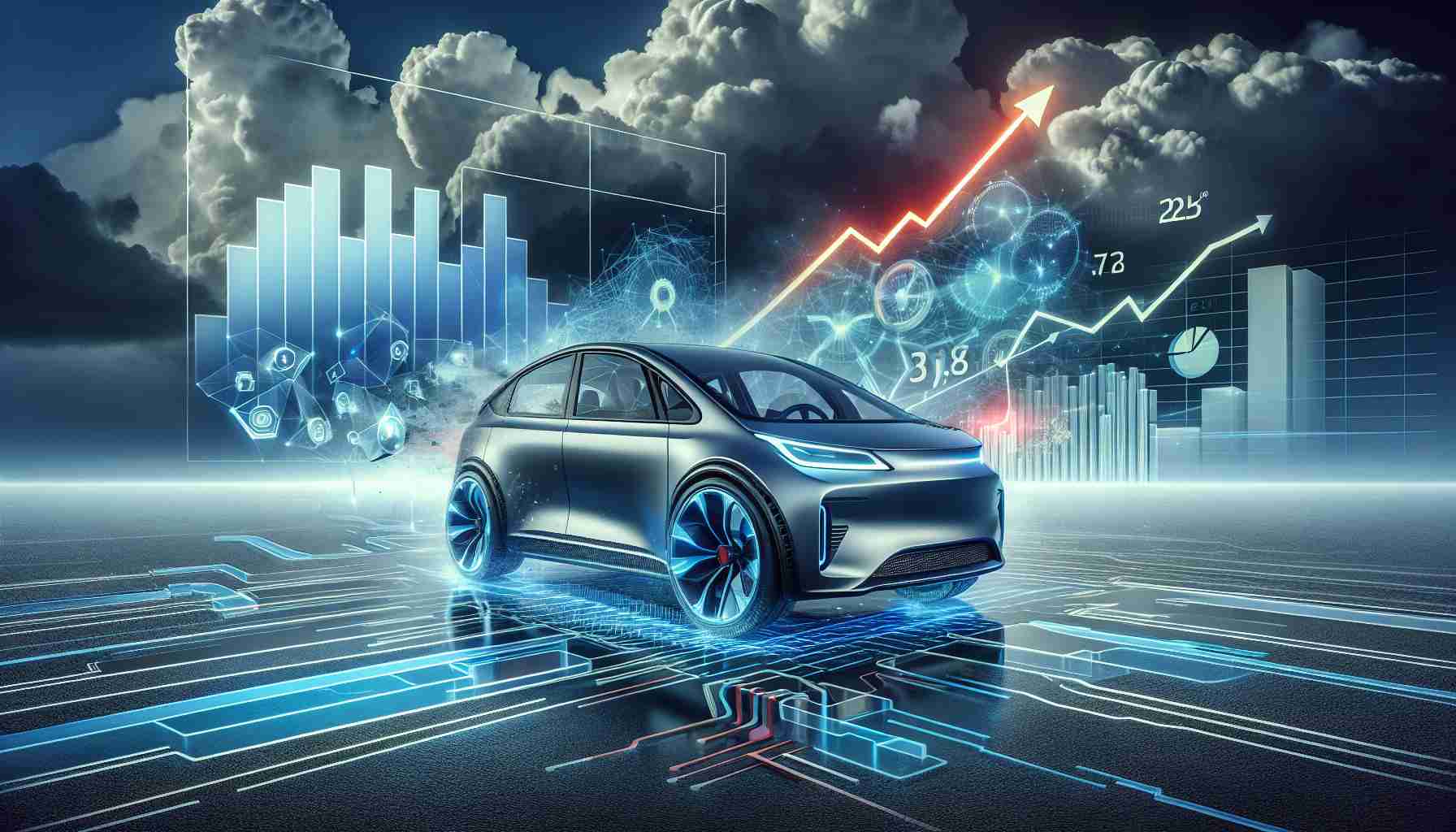- Nissan has ended its electric vehicle merger with Honda, seeking new partnerships for future growth.
- The decision follows Honda’s demand for greater control, prompting Nissan to explore other collaborations.
- Production has declined by 9%, increasing urgency for Nissan to innovate in the EV market.
- Potential collaboration with Foxconn, a tech leader in manufacturing, is generating interest.
- Nissan’s future hinges on forming alliances to develop software-defined vehicles for competitive advantage.
- Upcoming earnings reports will provide insights into the effectiveness of Nissan’s new strategies.
Nissan is revving up its strategy after abruptly terminating its electric vehicle (EV) merger with Honda. The board’s recent decision marks a bold pivot for the automaker, which is now on the lookout for a new partner to navigate the electrifying future of the automotive industry.
Following a tense negotiation where Honda sought significant control over the alliance, Nissan CEO Makoto Uchida confirmed the split, leaving a once-potential powerhouse merging around a whopping $58 billion market cap in the dust. With production falling globally and workforce reductions looming, Nissan is feeling the pressure to innovate swiftly and effectively.
In this climate, rumors swirl that Nissan may cozy up to Foxconn, the tech giant known for manufacturing Apple products. Foxconn’s interest in the automotive sphere heat up after discussions with Renault, which owns a significant stake in Nissan. Their chief strategy officer, a former Nissan executive, could provide valuable insights into revitalizing Nissan’s EV lineup.
With Nissan facing a 9% decline in global production, the stakes are higher than ever. Their hopes now rest on potential collaborations with tech leaders to create cutting-edge, software-defined vehicles that could reshape the market landscape.
As Nissan charts a new course, eager eyes turn to the upcoming earnings reports. Will Foxconn be the wind in Nissan’s sails, or will they stall in the fast lane of EV competition? Stay tuned for updates and share your thoughts—could this partnership be the spark Nissan needs?
Is Nissan’s EV Strategy Set for a Major Overhaul? Find Out What’s Next!
Nissan’s Electric Vehicle Strategy: What’s New?
Nissan is currently redefining its strategy for electric vehicles (EVs) after ending its partnership plans with Honda. This shift is no small matter—Nissan is on the lookout for a new ally to help navigate the rapidly evolving landscape of the automotive industry. Here’s a closer look at what’s happening:
# Key Trends in EV Strategy:
– Potential Partnership with Foxconn: Following the split with Honda, rumors suggest that Nissan could be considering a partnership with tech giant Foxconn. This comes as Foxconn actively explores opportunities in the automotive sector, especially after its discussions with Renault.
– Focus on Software-Defined Vehicles: Nissan aims to innovate with new technologies, especially software-defined vehicles that utilize advanced software platforms to enhance performance and user experience.
– Market Forecast: Analysts project steady growth in the global EV market, often emphasizing the need for established manufacturers like Nissan to partner with tech firms to remain competitive.
Pros and Cons of Nissan’s New Direction
# Pros:
– Access to Technology: Partnering with tech firms like Foxconn could provide Nissan with cutting-edge technology to improve its EV lineup.
– Market Relevance: A fresh start can reinvigorate Nissan’s brand as a forward-looking automaker in the EV space.
# Cons:
– Uncertain Partnerships: Shifting alliances can create instability and confusion in company strategy and consumer perception.
– Production Challenges: With a noted 9% decline in production, Nissan faces pressure to ramp up its outputs while maintaining new partnerships.
Use Cases for Nissan’s New EV Innovations
1. Urban Mobility Solutions: Nissan might focus on compact, efficient vehicles tailored for urban environments, leveraging technology to enhance user convenience.
2. Fleet Management: Develop software-driven solutions for fleet operators that can utilize data analytics for maintenance and efficiency.
Important Questions Answered
1. Why did Nissan terminate its merger with Honda?
– The decision stemmed from significant disagreements over governance and control of the alliance, prompting Nissan to seek other strategic partners.
2. What is Nissan’s expected direction following the Honda split?
– Nissan is exploring potential collaborations with tech companies, notably Foxconn, to enhance its EV capabilities and remain competitive in a rapidly changing market.
3. How will Nissan address its declining production rates?
– By leveraging new partnerships and focusing on innovative technological advancements, Nissan hopes to optimize production and introduce new EV models that cater to market demands.
Latest Insights and Innovations
– Market Analysis: The global EV market is projected to grow significantly in the next decade, making strategic partnerships more vital for legacy automakers struggling with traditional manufacturing models.
– Sustainability Focus: Nissan’s future strategies may also align with sustainability initiatives, showcasing a commitment to reducing carbon footprints in their production processes.
Explore further insights on Nissan’s future and possibilities in the EV landscape at Nissan Global.













